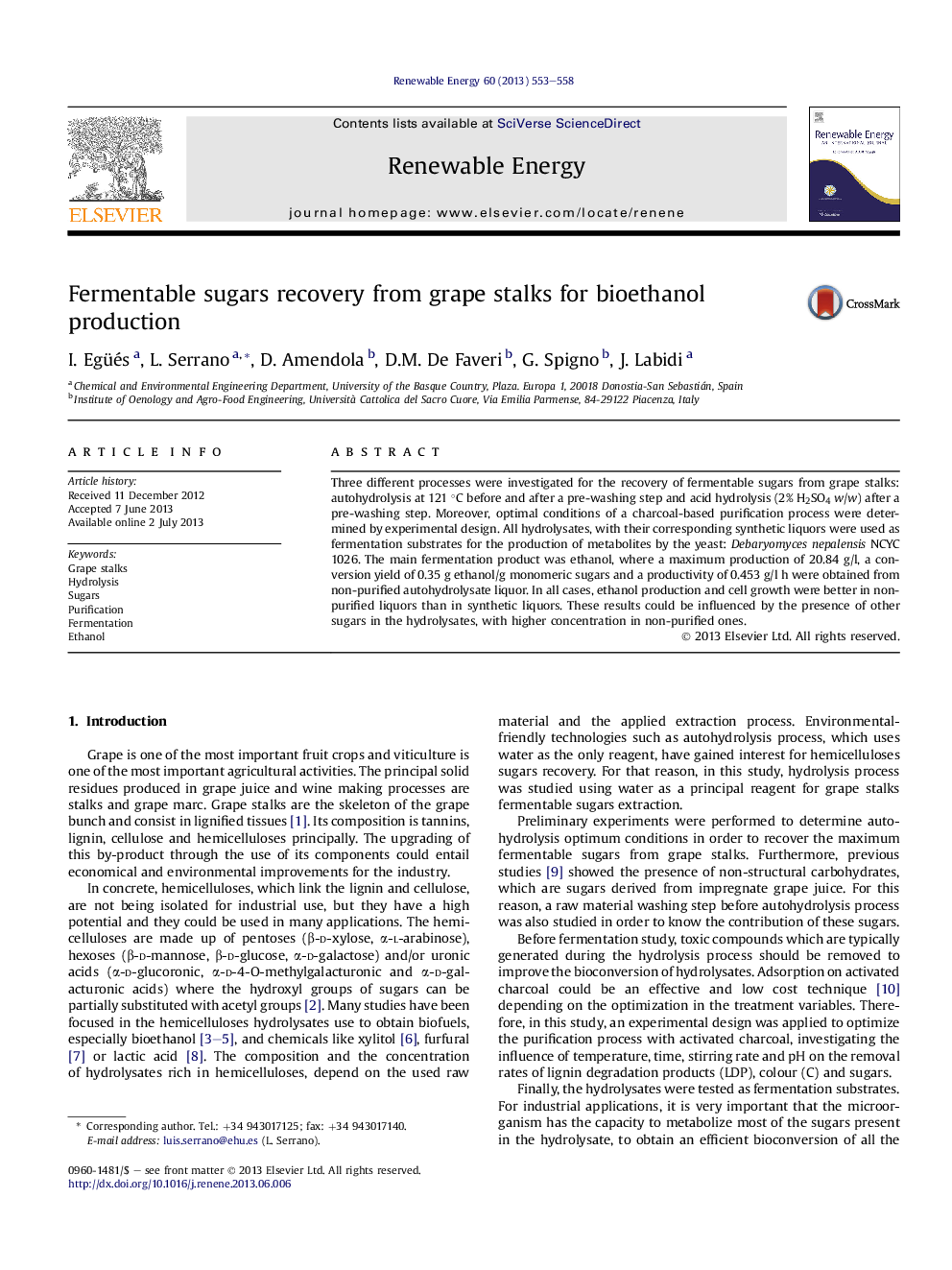| Article ID | Journal | Published Year | Pages | File Type |
|---|---|---|---|---|
| 6769365 | Renewable Energy | 2013 | 6 Pages |
Abstract
Three different processes were investigated for the recovery of fermentable sugars from grape stalks: autohydrolysis at 121 °C before and after a pre-washing step and acid hydrolysis (2% H2SO4w/w) after a pre-washing step. Moreover, optimal conditions of a charcoal-based purification process were determined by experimental design. All hydrolysates, with their corresponding synthetic liquors were used as fermentation substrates for the production of metabolites by the yeast: Debaryomyces nepalensis NCYC 1026. The main fermentation product was ethanol, where a maximum production of 20.84 g/l, a conversion yield of 0.35 g ethanol/g monomeric sugars and a productivity of 0.453 g/l h were obtained from non-purified autohydrolysate liquor. In all cases, ethanol production and cell growth were better in non-purified liquors than in synthetic liquors. These results could be influenced by the presence of other sugars in the hydrolysates, with higher concentration in non-purified ones.
Related Topics
Physical Sciences and Engineering
Energy
Renewable Energy, Sustainability and the Environment
Authors
I. Egüés, L. Serrano, D. Amendola, D.M. De Faveri, G. Spigno, J. Labidi,
